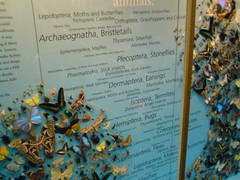Secular religion?
 John Gray in the Guardian a couple of weeks ago joined the trend of writing kind of stupidly about religion and secularism. Gray rather wants to have his cake and eat it, arguing that secularism is based on religion and, anyway, secularism is worse than religion. Now, the first half of this argument is true; contemporary western secularism really does draw a lot on early Christian arguments against paganism, reformation arguments against Catholicism, and enlightenment arguments against a personal God, which is a tradition of ideas central to Christianity. But true as this is, it doesn’t constitute the knockdown argument against secularism that Gray seems to think it does. On the contrary, secularism’s relationship to religion is no argument against secularism at all.
John Gray in the Guardian a couple of weeks ago joined the trend of writing kind of stupidly about religion and secularism. Gray rather wants to have his cake and eat it, arguing that secularism is based on religion and, anyway, secularism is worse than religion. Now, the first half of this argument is true; contemporary western secularism really does draw a lot on early Christian arguments against paganism, reformation arguments against Catholicism, and enlightenment arguments against a personal God, which is a tradition of ideas central to Christianity. But true as this is, it doesn’t constitute the knockdown argument against secularism that Gray seems to think it does. On the contrary, secularism’s relationship to religion is no argument against secularism at all.
 A particularly good illustration of this point is the Oxford University Museum of Natural History. It’s housed in a building designed as a “Cathedral to Science,” which has much the same kind of neo-Gothic sense of the sacred as Victorian railway stations, with vaulted ceilings, saints of science (Newton, Darwin, erm, Prince Albert) on plinths along one wall, reconstructed dinosaurs looming over the visitors. And I don’t mean that facetiously; there really is something religious about 19th century industrial modernity, but, as I say, that’s not necessarily a criticism. Unless you sign up to the village atheist position that the entire history of religion is some kind of inexplicable mass stupidity, presumably you have to recognize that religious ways of thinking have had some utility; shouldn’t we actually expect post-religious ways of thinking to fulfill some of the same rôles as religion? The French revolutionaries, with their religion of reason, and the Victorians, with their more plainspeaking (and thus significantly more arrogant) devotion to truth, mocked by Nietzsche, were largely right.
A particularly good illustration of this point is the Oxford University Museum of Natural History. It’s housed in a building designed as a “Cathedral to Science,” which has much the same kind of neo-Gothic sense of the sacred as Victorian railway stations, with vaulted ceilings, saints of science (Newton, Darwin, erm, Prince Albert) on plinths along one wall, reconstructed dinosaurs looming over the visitors. And I don’t mean that facetiously; there really is something religious about 19th century industrial modernity, but, as I say, that’s not necessarily a criticism. Unless you sign up to the village atheist position that the entire history of religion is some kind of inexplicable mass stupidity, presumably you have to recognize that religious ways of thinking have had some utility; shouldn’t we actually expect post-religious ways of thinking to fulfill some of the same rôles as religion? The French revolutionaries, with their religion of reason, and the Victorians, with their more plainspeaking (and thus significantly more arrogant) devotion to truth, mocked by Nietzsche, were largely right.

 The OU Museum of Natural History’s exemplary quality doesn’t stop there, however. Rather splendidly, the museum treats natural history itself historically. What was once natural history’s central activity, classification, is turned into a game for children, while the museum exhibits flagrently refuse to classify anything at all. I don’t have Moll‘s knowledge of the anthropology of museum representations of science, but I was fascinated by the way the exhibits recognized the contingency of what have been considered scientific facts at different times. Science becomes an eminently human activity.
The OU Museum of Natural History’s exemplary quality doesn’t stop there, however. Rather splendidly, the museum treats natural history itself historically. What was once natural history’s central activity, classification, is turned into a game for children, while the museum exhibits flagrently refuse to classify anything at all. I don’t have Moll‘s knowledge of the anthropology of museum representations of science, but I was fascinated by the way the exhibits recognized the contingency of what have been considered scientific facts at different times. Science becomes an eminently human activity.
I guess what I’m trying to say is that the Museum of Natural History instantiates a Feuerbachian self-overcoming of religion; which is something much more interesting than broadsheet denunciations of religion or atheism.